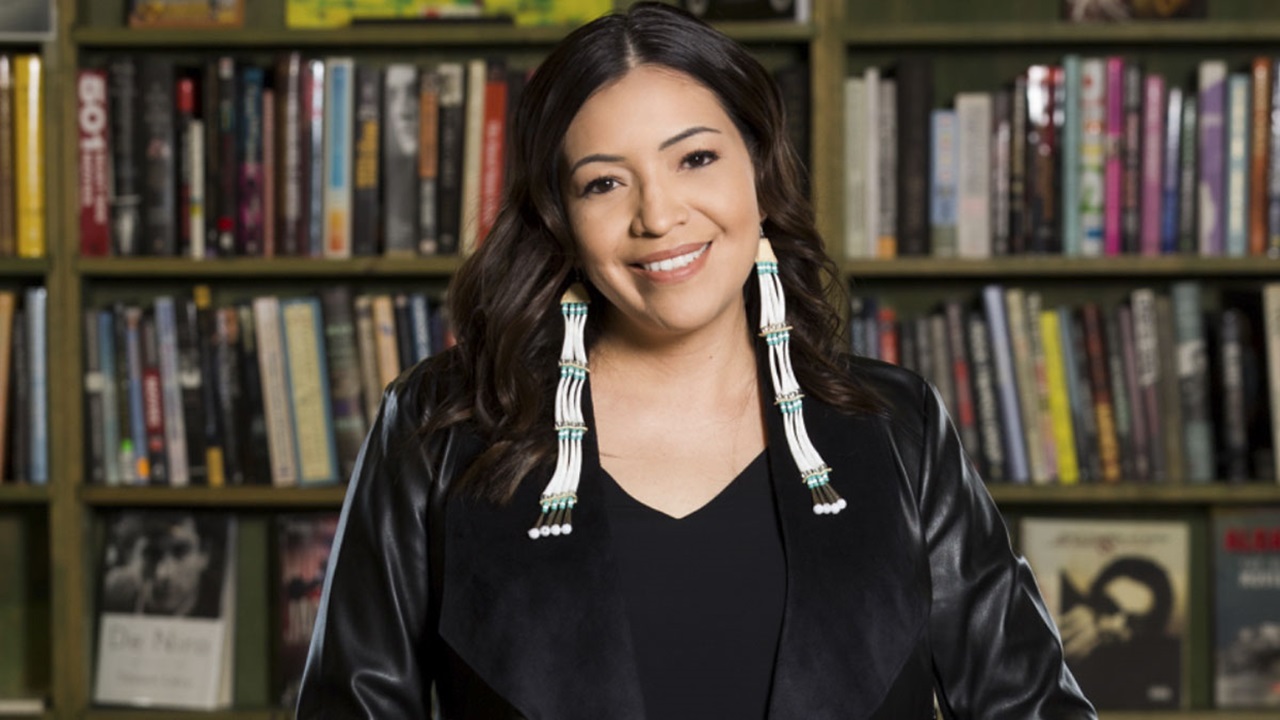Heart and Spirit

The generations before her created space for voices to be heard, and Serene Thin Elk ’04 is making sure those spaces are filled with calls for policy change and a holistic approach to health care for the Native community.
Thin Elk, an enrolled member of the Ihanktonwan Nation (Yankton Sioux Tribe) and also from the Sicangu Oyate (Rosebud Sioux Tribe), serves as the chief behavioral health officer at South Dakota Urban Indian Health in Sioux Falls (SDUIH). She is dedicated to using her firsthand experiences in the clinic to drive her work at the state level, advocating for better resources for Native communities across South Dakota.
“I am proud of the work we are doing in our community,” Thin Elk said. “I take my knowledge of working with individuals one on one and advocate for greater change within systemic structures that make it challenging for Native relatives to access care.”
SDUIH is a nonprofit corporation that operates two full-time Federally Qualified Health Centers (FQHCs) and Patient Centered Medical Home (PCMH) clinics in the state of South Dakota.
SDUIH’s mission is to provide total quality medical care for Native American people and the economically disadvantaged residing in urban areas of South Dakota. Care provided is not limited to just the medical needs; SDUIH also provides holistic quality care for the entire family. Physical and mental health care are essential for a healthy society.
Thin Elk knew from a young age that she wanted to pursue a career that was dedicated to helping others and grew up with great examples in her own parents. Her father, Gene Thin Elk, served as the director of Native Student Services, adjunct professor and Native cultural advisor for students, among other roles for over three decades at the University of South Dakota. Her mother, Diane Merrick, being a fluent speaker of the N/Dakota language, has been both a teacher and advocate for others to learn about their culture and language.
“From a young age, I watched my parents show up and care for their community, making a positive impact on USD and beyond,” Thin Elk said.
Thin Elk’s history with the university began as a child. She remembers being surrounded by community members as they painted the walls of the Native American Cultural Center (NACC), later hosting everything from birthday parties to memorials and cultural gatherings in the space.
The NACC was one of many places on campus that felt like home, and Thin Elk ultimately knew that there was no better place for her to pursue her Bachelor of Arts degree in psychology and a minor in American Indian Studies.
Thin Elk admired the work that USD was doing to create programming to support Native youth and knew countless faculty and staff members who were dedicated to making students feel welcome and safe.
“As a student, you can never fully be prepared for the journey ahead. It’s going to be full of amazing connections and also painful adversity at times. It’s incredibly hard to be away from family, and Native students can have an especially difficult time adjusting,” Thin Elk said. “It’s so important to find your community and surround yourself with healthy people and resources. We are all connected.”
After graduating from USD, Thin Elk moved to Cambridge, Massachusetts, to pursue her master’s degree in expressive therapy and mental health counseling. Later, she would travel around the globe, following a call to learn about different cultures, religions and spiritualities.
The pull to come back to South Dakota was always lingering, and ultimately, Thin Elk knew she wanted to make a difference in her own communities, surrounded by family.
The root of her work and passion has always been healing -- from trauma and addiction to grief and mental well-being. The approach is multifaceted, and it is key that tradition and ceremony are not overshadowed by traditional Western medicine.
Thin Elk looks at the work she does through the perspectives of the medicine wheel. From the mind, heart, body and soul, she works to address the whole person and honor the importance of community in a person’s overall well-being.
“Everything I do comes from a place of heart and spirit, even when it’s scary or painful. As helpers, if we come from that place when working with people who are hopeless, we can spark hope that it can get better,” said Thin Elk.
Thin Elk and the team at SDUIH are having conversations with entities across the state of South Dakota with the hopes of piloting a mobile health unit and partnering with community outreach programs to activate more resources and care for South Dakotans.
When the City of Sioux Falls announced The Homeless Task Force in June of 2022 and invited SDUIH to take part in the conversations, they were eager to join. The goal of the task force is to make policy recommendations to reduce homelessness over a 10-year period.
“We know the need is there and welcome the opportunity to address the challenges our unsheltered relatives are facing,” Thin Elk said. “These aren’t all new challenges, but many have been exacerbated by the pandemic, and our goal is to help people understand that they are not alone. We have seen so many changes in recent years in our society and health systems, and they all trickle down to the individual person that needs the help and support of community.”
Photo by Shane Monahan Photography
